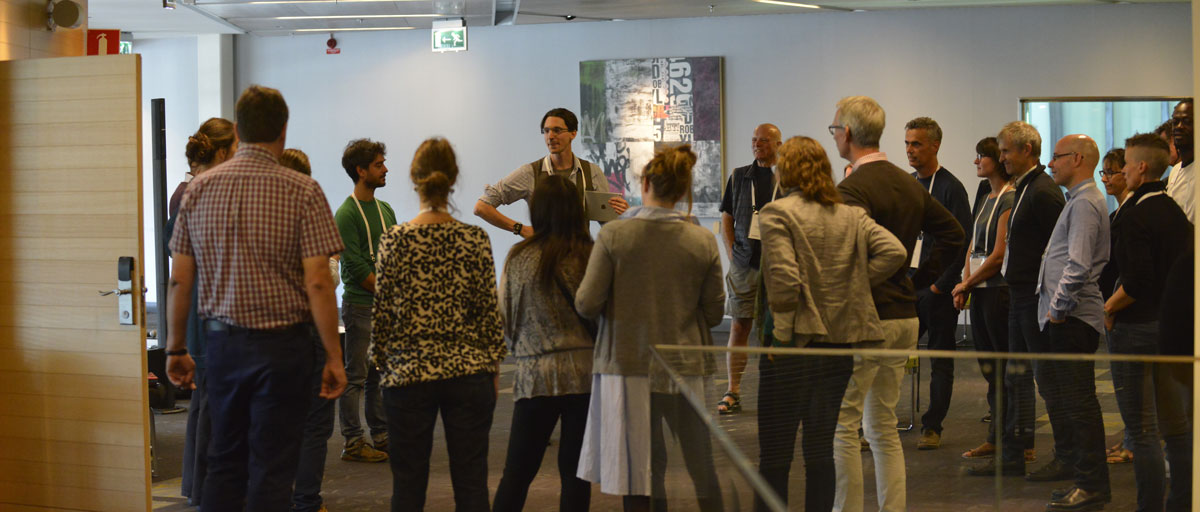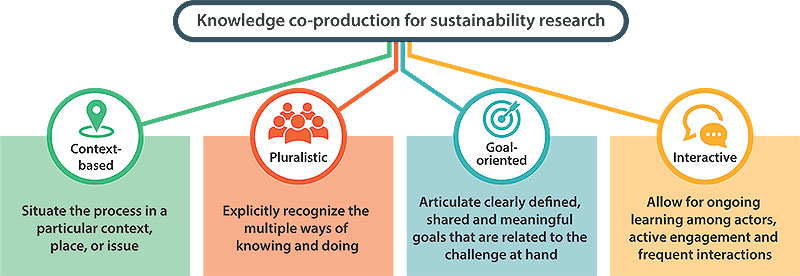Bildtext får vara max två rader text. Hela texten ska högerjusteras om den bara ska innehålla fotobyline! Photo: B. Christensen/Azote
KNOWLEDGE CO-PRODUCTION
How to produce knowledge together

Knowledge co-production should be grounded in context, respect for multiple ways of knowing, work towards shared goals and support frequent interactions, according to a new study published Nature Sustainability. Photo: R. Kautsky/Azote
- Today’s sustainability challenges need knowledge and solutions that are produced in collaboration between academics and non-academics.
- Such knowledge co-production should be grounded in context, respect for multiple ways of knowing, work towards shared goals, and support frequent interactions.
- These approaches must be applied beyond local scales, and target the underlying values, assumptions and worldviews that underpin current unsustainable pathways
Study identifies four criteria necessary for successful knowledge co-production for sustainability research
HARNESSING THE POWER OF MANY: Centuries of science have created a phenomenally successful and finely tuned mechanism for producing knowledge. But scientists have mostly been doing the work alone. That needs to change. Complex problems such as climate change, ecological degradation and poverty must be dealt with differently.
A powerful process, if done right
In an analysis published in Nature Sustainability, an international team led by centre researcher Albert Norström present four general principles that are necessary for such successful knowledge co-production for sustainability research.
1. Context based: The process should be grounded in an understanding of how a challenge emerged, how it is affected by its particular social, economic, political, and ecological contexts, and the different beliefs and needs of those affected by it.
2. Pluralistic: The process should explicitly recognize a range of perspectives, knowledge, and expertise and consider gender, ethnicity, and age in development.
3. Goal-oriented: The process should articulate clearly defined, shared and meaningful goals that are related to the challenge at hand
4. Interactive: The process should allow for ongoing learning among actors, active engagement and frequent interactions
Co-production is a powerful process because it enables academics and non-academics to work closely together and offer the opportunity to produce more than just knowledge.
Albert Norström, lead author
The authors also use the four principles to offer practical guidance on how to evaluate and monitor knowledge co-production practices.

Principles for knowledge co-production in sustainability research. High-quality knowledge co-production for sustainability should be context- based, pluralistic, goal-oriented and interactive. Click on illustration to access scientific study
From local to global
Knowledge co-production has predominantly involved teams of academics and non-academics working at local to regional level. Now there is a growing interest in applying it at global scale. One example is Seafood Business for Ocean Stewardship, a science-business initiative which consists of the world’s ten largest companies within the seafood industry and their joint quest to make their business sector more sustainable.
The researchers stress that co-production on its own is not enough to bring about more sustainable outcomes. Nevertheless, the researchers hope that articulating principles for co-production can help researchers and stakeholders create more powerful partnerships in pursuit of sustainability.
Video (in Swedish): researchers from Stockholm Resilience Centre and the Baltic Sea Centre at Stockholm University reflect on the importance of collaboration and co-production of knowledge:
Norström, A. V., Cvitanovic, C., Löf, M.F., West S., Wyborn,. C., Balvanera, P. et.al. 2020. . Principles for knowledge co-production in sustainability research. Nature Sustainability 3 (1) doi 10.1038/s41893-019-0448-2
CENTRE RESEARCHERS INVOLVED







